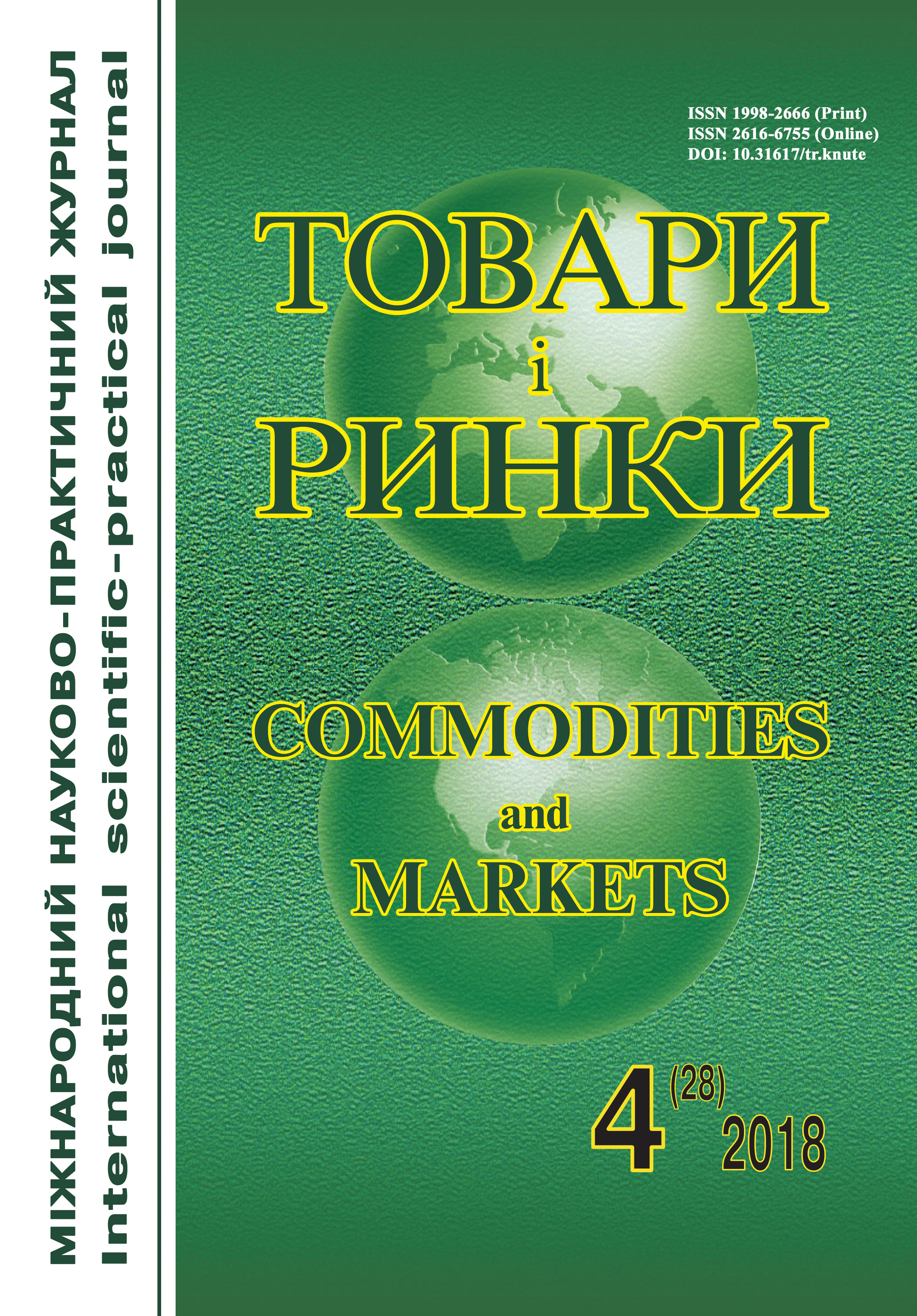Physiological efficiency of products for enteral nutrition
Keywords:
physiological efficiency, products for enteral nutrition, nutrients, needs, protein, clinical applicationAbstract
Background. Full nutrition is the basis of the life of the human body and determines the ability to tolerate physical and psycho-emotional stress. In the period when the natural way of replenishing the progressive deficiency of the main nutrients is eliminated or is limited, special attention in the complex of therapeutic measures becomes enteral nutrition. The basis of the creation of modern foods for enteral nutrition is the theory of balanced nutrition based on the physiological needs of nutrients and the energy of a healthy person, but taking into account the peculiarities of the clinical course, the stage of the disease, the level and nature of metabolic disorders.
The aim of the work is to conduct research on the determination of the physiological efficiency of products for enteral nutrition, taking into account the specific needs of the human body.
Material and methods. 4 dry mixes for enteral feeding of the Vital prod series have been selected as the subjects of the study. The research was conducted in conditions of the clinical bases of the Ukrainian Military Medical Academy. Biochemical methods have been used to determine the protein content and the concentration of urea in the blood; blood glucose content. The assessment of the effect of products on the correction of the state of patients is carried out on the indicators of their general state of health, that is, the physical and psycho-emotional state.
Results. The analysis of the results suggests that in patients who in addition to the main diet consumed the developed products, namely: Vital prod-Combi (for patients with critical conditions), Vital prod-Diabet (for people with impaired glucose tolerance), Vital prod-Renal (for patients with renal insufficiency), Vital prod-Forte (for patients with cancer) the following effects have been observed: three times faster the normalization of the level of protein in the blood, there was a more pronounced improvement of physical and psycho-emotional states, as well as reduction of treatment terms after discharge from the hospital, than in patients of the control group.
The developed products may be recommended for consumption in the treatment and rehabilitation of patients in accordance with the specifics of the disease, with a reduced level of total protein in the blood for the normalization of metabolic processes by providing exogenous delivery of protein that is easily absorbed by the body and improving the psycho-emotional state.
Conclusion. Medical-biological researches have proved the physiological efficiencyof products for enteral nutrition, developed taking into account the needs and preferences of the target category of consumers. The obtained results confirm the possibility of using products in the formation of dietary rations of persons in medical, rehabilitation and health institutions. It is promising to create an assortment and study of the consumer properties of food products for enteral nutrition in different commodity forms in order to ensure their multi-purpose use.
References
Kostjuchenko, A. L., Zheleznyj, O. G., & Shvedov, A. K. (2001). Jenteral'noe iskusstvennoe pitanie v klinicheskoj medicine [Enteral Artificial Nutrition in Clinical Medicine]. Petrozavodsk : Intel-Teh [in Russian].
Beljaev, O. V. (2009). Parenteral'noe i jenteral'noe pitanie v intensivnoj terapii [Parenteral and enteral nutrition in intensive care]. Kiev : KIM [in Russian].
Lochs, H., Allison, S. P., Meier, R. et al. Introductory to the ESPEN guidelines on enteral nutrition: terminology, definitions and general topics. Clinical Nutrition. 2006. N 25. P. 180-186 [in English].
Luft, V. M., & Kostjuchenko, A. L. (2002). Klinicheskoe pitanie v intensivnoj medicine [Clinical nutrition in intensive medicine]. SPb. : Dilja [in Russian].
Karpenko, P. O. (2016). Alimentarnyj chynnyk u kompleksnomu likuvanni hvoryh pry metabolichnomu syndromi [Alimentary factor in the complex treatment of patients with metabolic syndrome]. Problemy starenija i dolgoletija – Problems of aging and longevity, 1. (Vol. 25), (pp. 105-113) [in Ukrainian].
Horoshilov, I. E. (2000). Rukovodstvo po parenteral'nomu i jenteral'nomu pitaniju [Manual for parenteral and enteral nutrition]. SPb. : Normed-Izdat [in Russian].
Akbaylar, H. Basic principles of enteral feeding. Turk Gastroenterology. 2012. N 13 (4). Р. 186-191 [in English].
Barendgret, K., Soeters, P., Allison, S. et al. Basics in clinical nutrition: sample and stress starvation ЕSPEN. The European e-Journal of Clinical Nutrition and Metabolism. 2008. Vol. 6. P. e267-e271 [in English].
Kondrup, J., Allison, S., Elia, M. ESPEN guidelines for nutrition screenin. Clinical Nutrition. 2003. N 22. P. 415-423 [in English].
Belyj, V. Ja., Zaruckij, Ja. L., Zhovtonozhko, A. I., & Aslanjan, S. A. (2016). Ocherki hirurgii boevoj travmy zhivota [Surgery essays for abdominal trauma]. Kiev : MP "Lesja" [in Russian].
Antomonov, M. Ju. (2006). Matematicheskaja obrabotka i analiz mediko-biologicheskih dannyh [Mathematical processing and analysis of biomedical data]. Kiev: VMD [in Russian].
Gulich, M. P., Aslanjan, S. A., Motuzka, Ju. M., Sydoruk, D. P., Kupchenko, Ja. V., Okolec', A. V. et al. (2016). Vykorystannja produktiv dlja nutrityvnoi' pidtrymky u harchuvanni vijs'kovosluzhbovciv, poranenyh, postrazhdalyh i hvoryh [Using of products for nutritional support in the feeding of servicemen, wounded, injured and sick]. Medychne zabezpechennja antyterorystychnoi' operacii': naukovo-organizacijni ta medyko-social'ni aspekty – Medical support of the antiterrorist operation: scientificorganizational and medical-social aspects : zb. nauk. pr., (pp. 144-150). Kyi'v : NAMN, [in Ukrainian].



